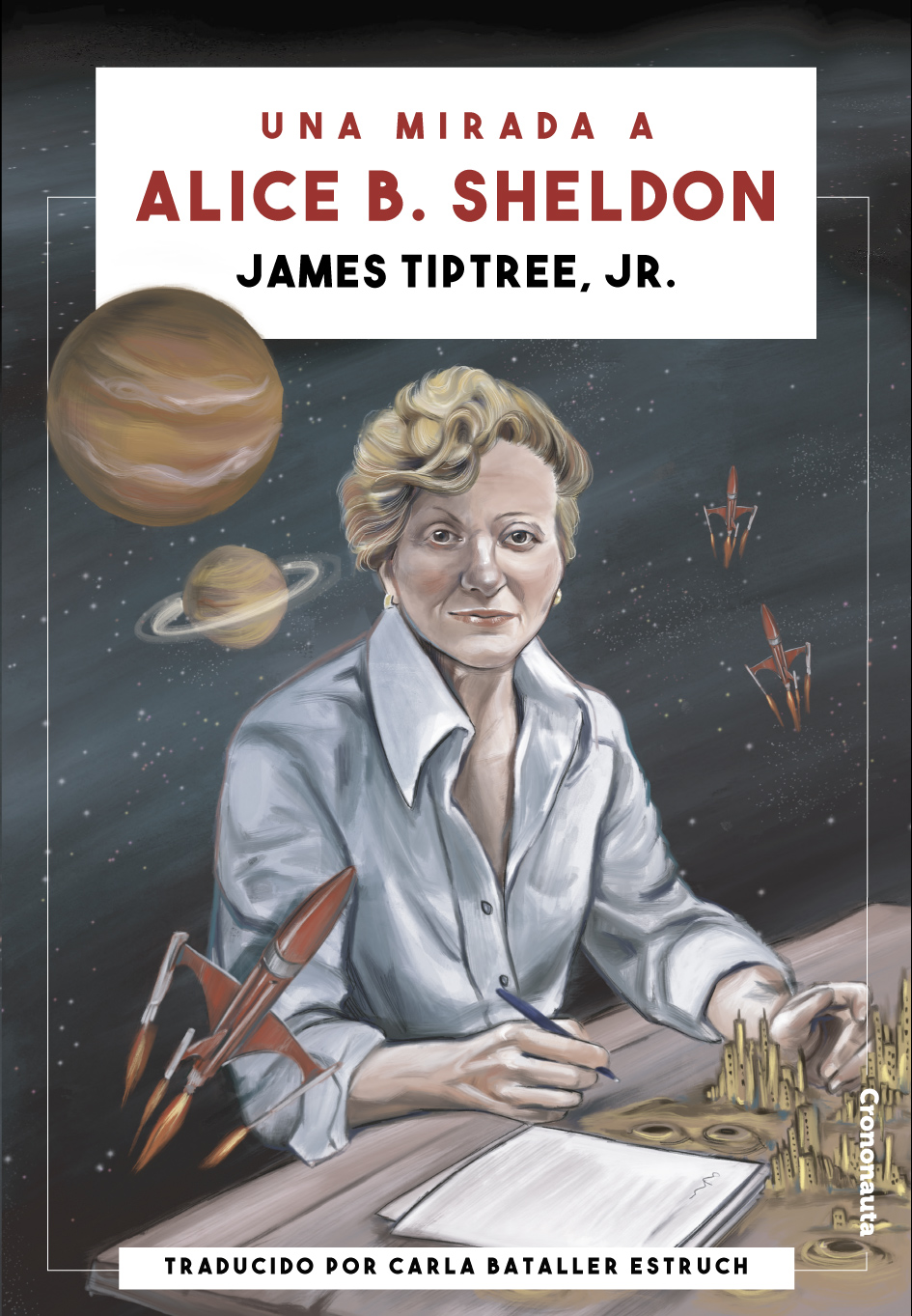
"James Tiptree Jr." was born Alice Bradley in Chicago in 1915. Her mother was the writer Mary Hastings Bradley; her father, Herbert, was a lawyer and explorer. Throughout her childhood she traveled with her parents, mostly to Africa, but also to India and Southeast Asia. Her early work was as an artist and art critic. During World War II she enlisted in the Army and became the first American female photointelligence officer. In Germany after the war, she met and married her commanding officer, Huntington D. Sheldon. In the early 1950s, both Sheldons joined the then-new CIA; he made it his career, but she resigned in 1955, went back to college, and earned a Ph.D. in experimental psychology. At about this same time, Alli Sheldon started writing science fiction. She wrote four stories and sent them off to four different science fiction magazines. She did not want to publish under her real name, because of her CIA and academic ties, and she intended to use a new pseudonym for each group of stories until some sold. They started selling immediately, and only the first pseudonym—"Tiptree" from a jar of jelly, "James" because she felt editors would be more receptive to a male writer, and "Jr." for fun—was needed. (A second pseudonym, "Raccoona Sheldon," came along later, so she could have a female persona.) Tiptree quickly became one of the most respected writers in the field, winning the Hugo Award for The Girl Who was Plugged In and Houston, Houston, Do You Read?, and the Nebula Award for "Love is the Plan, the Plan is Death" and Houston, Houston. Raccoona won the Nebula for "The Screwfly Solution," and Tiptree won the World Fantasy Award for the collection Tales from the Quintana Roo. The Tiptree fiction reflects Alli Sheldon's interests and concerns throughout her life: the alien among us (a role she portrayed in her childhood travels), the health of the planet, the quality of perception, the role of women, love, death, and humanity's place in a vast, cold universe. The Otherwise Award (formerly the Tiptree Award) has celebrated science fiction that "expands and explores gender roles" since 1991. Alice Sheldon died in 1987 by her own hand. Writing in her first book about the suicide of Hart Crane, she said succinctly: "Poets extrapolate." Julie Phillips wrote her biography, James Tiptree, Jr.: The Double Life of Alice B. Sheldon
Series
Books

Warm Worlds and Otherwise
1975

The Girl Who Was Plugged In/Screwtop
1989

The Women Men Don't See
1973

Out of the Everywhere, and Other Extraordinary Visions
1981

Neat Sheets
The Poetry of James Tiptree, Jr.
1996

A Momentary Taste of Being
1975

Tales of the Quintana Roo
1986

Star Songs of an Old Primate
1979

The Starry Rift
1986

Ten Thousand Light-Years From Home
1972

Houston, Houston, Do You Read?
1976

Stellar #7
Science Fiction Stories
1981

The Best of the Nebulas
1989

Her Smoke Rose Up Forever
1990

The New Atlantis
1975

Byte Beautiful
Eight Science Fiction Stories
1985

Souls/Houston, Houston, Do You Read?
1983

The Girl Who Was Plugged In
1973

Brightness Falls from the Air
1985

Up the Walls of the World
1978

Meet Me At Infinity
The Uncollected Tiptree: Fiction and Nonfiction
2000

The Wesleyan Anthology of Science Fiction
2010

Una mirada a Alice B. Sheldon
2021

Crown of Stars
1990

Two Great Novels
Up the Walls of the World & Brightness Falls From the Air
2016

A Treasury of American Horror Stories
1988

Happiness is a Warm Spaceship
2023

The Future is Female! Women's Science Fiction Stories from the Pulp Era to the New Wave
2018


